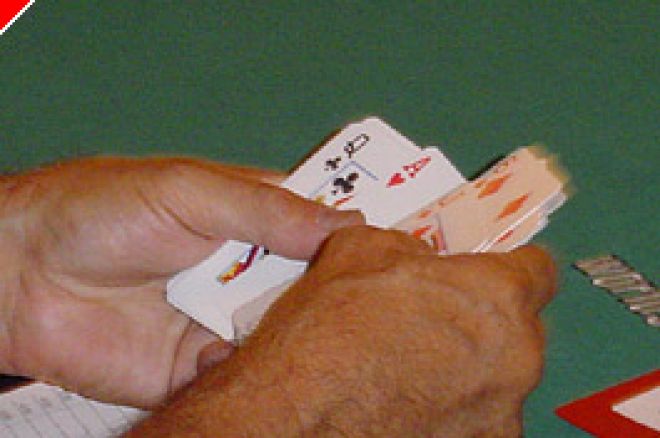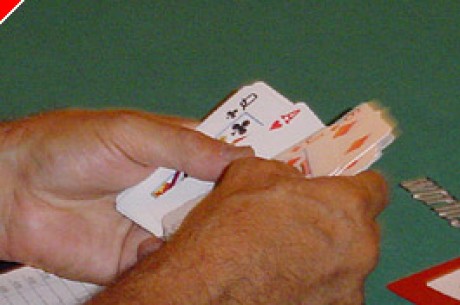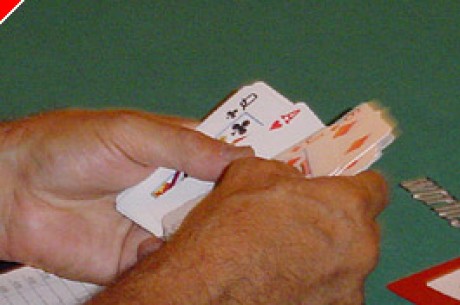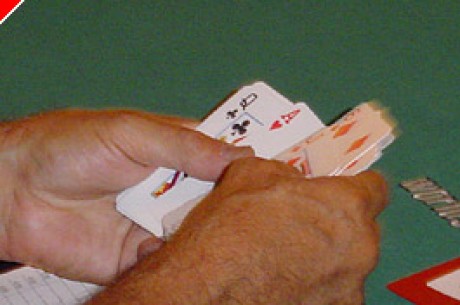Stud Poker Strategy - WSOP Lessons, Part Two

In my last article I noted that in spite of the long odds against winning a WSOP event, I decided to enter one anyway �� a $1,000 Stud8 event. This article will explain how I prepared.
A full time professional poker player has an enormous advantage over the hobbyists like me. Even if we were equally skilled in the basics of the game, he would have a significant edge when it came to two important factors in tournaments like this.
First of all, the full-time pro would know many of the other full-time pros entering the tournaments. He'd know their tendencies in a way I would never learn. He would know, for example, that Bill X often slow played premium cards. He would remember that Johnny D would sometimes check raise bluff on the River. He'd recall specific hands he'd played and their outcome. And he'd have the advantage of having had lots of time to think about how these regular opponents had played him for large stakes in the past.
I would have none of that.
But an even more important advantage would be his stamina.
Think about what it's like for the part-time player arriving for a tournament in Las Vegas. He's probably on a relatively short schedule �� getting a week's vacation or so at most. He's probably trying to maximize his time in Las Vegas, signing up for at least a few tourneys, trying to get into as many side games as his time allows, maybe even trying to do some touristy things like visiting casinos he's heard of.
The tourist is probably not getting a lot of rest. He didn't come to Las Vegas to sleep, afterall. He came to experience the scene �� a scene he only participates in infrequently �� if ever. Unlike his home town experience, here poker goes on in dozens of places 24 hours a day. And he's not in a game he might be eating at a late night buffet or catching a show or drinking at any of a thousand clubs.
Think about the pro. He has no such time constraints. If he's from Las Vegas or California then he's at home �� pacing himself as he always does and following his routine. He's not distracted by the glitz and the glitter. He sees it all the time. It has lost its sparkle for him. He's not dazzled by all of the action. He's familiar with it.
Even if he's not a Las Vegas or Southern California player, he's used to the pace of the tournament circuit. He's used to flying into town for three or four weeks at a time. He may have rented a house or leased an apartment for the month. His life isn't disrupted by a tournament �� it is built naturally around it.
This is an enormous advantage. One of the most important traits of a tournament player, or any poker player for that matter, is patience. Another is concentration. This is especially true in big bet poker and during tournaments --as one mistake can eliminate or cripple your entire stack. It's not like a ring game when you can always replenish and start again �� properly chastened by a moment's lapse. In a tournament, lose one contested hand because you didn't pay attention and you could be out then or soon thereafter.
Fortunately, there are some simple things that a visiting tournament player can do to even the odds. Most are common sense.
First of all, don't plan on playing a lot. If you are in town for a week, focus on one or two events maximum. Sure, if you do well in the first one you can always enter more, but concentrate on preparing for that one tournament.
I decided on a Stud8 tourney. Toward that end, I didn't play hold 'em or stud high the week leading up to the tourney. I played Stud8 events at Foxwoods, my home casino, and on line. I focused entirely on that game. I'm not suggesting that one can't play multiple games �� or even that one can't win different types of poker tournaments in a week. It happens all the time. But for the part-time player, I'd suggest that you focus on one game and play only that game if you can leading up to the tournament.
I also suggest that you book a room at a place that doesn't have a poker room �� and ideally that doesn't even have a casino. It's naturally tempting to stay where the action is. If you're playing in the WSOP you want to stay at the Rio or right down the street at the Palms or at the Gold Coast. If not, then you are likely, as a poker player, to stay in one of the dozens of casinos that have poker. First of all, you can get a poker room rate at many of them �� which makes it at least appear to be a bargain. Second, though you're playing in a tournament, you want to be near a poker room for your side game play. It only makes sense.
Still, think about the downside. If there's poker where you're staying �� and especially if you earn points or need play to qualify for a cheap rate, then you're always tempted to go down to the poker area and play. This affects your sleep. And it affects your ability to relax away from the table. Believe me when I tell you that this will hurt your game. Your brain needs its rest in between sessions. It needs sleep and it needs downtime. Staying where there's poker is just too much temptation for most people.
I was going to stay at a casino with a poker room �� the Orleans in fact. They're a wonderful place with inexpensive poker rates, beautiful rooms, and a very nice low and middle limit poker room with limit and no limit hold 'em action 24 hours/day. I've stayed there before and really enjoyed it.
But this time I decided to stay at the Extended Day Suites on Valley View. It was only a five minute walk from the Rio, but it had no casino �� and certainly no poker room. Once I was there I was done with poker for the night. It even had a kitchen and a sitting room so I could easily spread out, eat and relax when I wasn't playing.
Get a west facing room if you can. This will allow you to sleep late without the disruption of a bright rising sun. If you're like me, you'll have a hard enough time sleeping with all of the energy from the many games you'll be in. You don't need any help from mother nature early in the morning.
I'd also suggest you keep a notebook. Write your thoughts and observations in it. Get yourself into the habit of analyzing how you played �� not just how much you were up or down. I found, for example, that I noticed more about my game in sessions I played after I spent some time entering my thoughts into a notebook. If you follow golf, tennis or table tennis you'll notice that even the very top pros will take a few practice swings after they strike the ball �� especially after an errant hit. They are doing, physically, what you need to do mentally. Reinforce proper play .
I recommend that you be careful with your diet �� especially the day before and the morning of your tournament. It's tempting to overindulge in Las Vegas. There is just so much inexpensive great food �� often without limit at the many lavish buffets. Overeating is a real risk. It can make you lethargic, inattentive, and just plain sleepy. Also, eating too much can interfere with your sleep �� which in turn can hurt your concentration, memory and ability to think.
I ate less than I normally do during this stay in Las Vegas. I had plenty of water �� which is really important in this desert climate �� and I ate only small portions �� at least until after my tournament was finished. I'm not saying you have to become a health nut, but resist the urge to binge.
I also found it useful to exercise. I did so each day, walking for 45 minutes or so before breakfast. I found this to keep me mentally sharp. It also helped my physical stamina at the table. Normally, I have to get up and move every 20 minutes or so. For this tournament I found that I could stay seated for nearly an hour at a stretch.
For my next article I'll let you know more about the actual play of the tournament and some of the unexpected turns the tournament took for me.
Ed note: There will be no unexpected turns when you play Stud at Party Poker.








